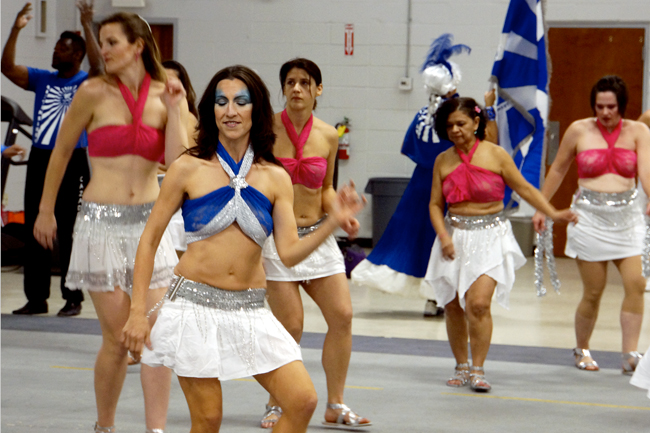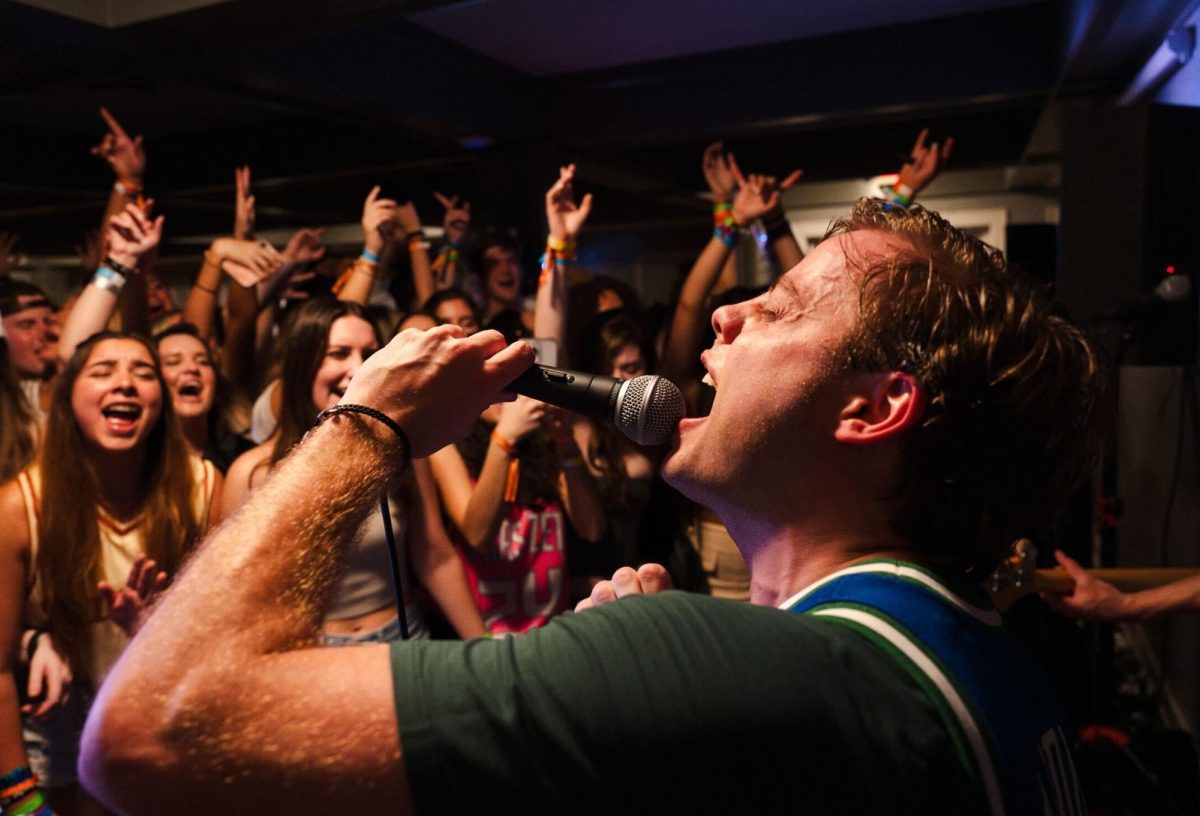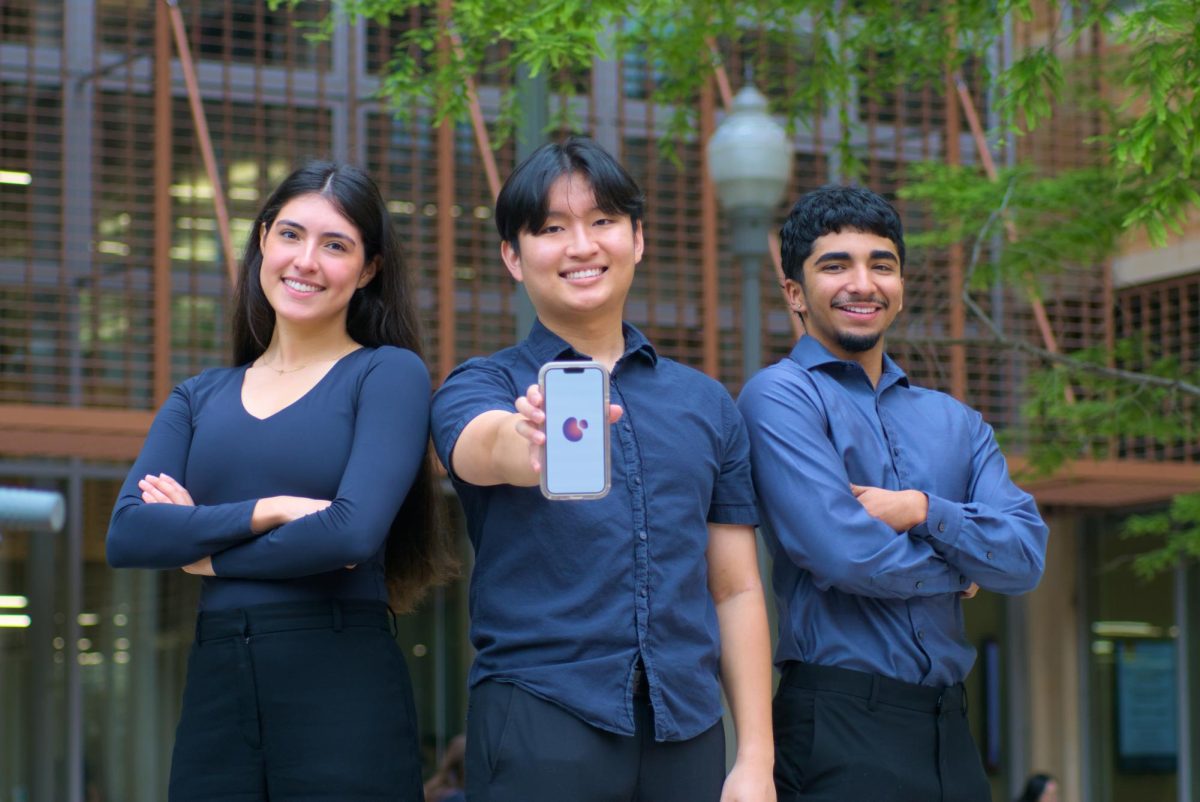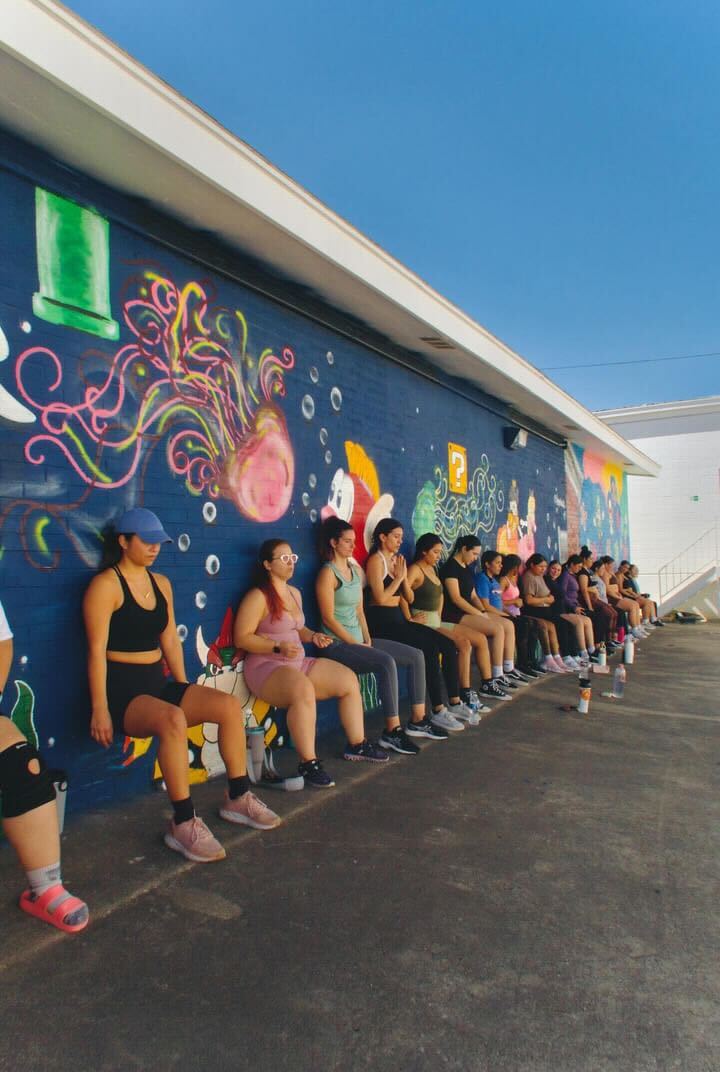In 1975, a group of homesick Brazilian exchange students at UT started one of the biggest indoor Carnaval celebrations outside of Brazil.
The students missed Brazil’s pre-Lent tradition of Carnaval, so they decided to throw their own at a local Unitarian church. The event grew from there into the huge celebration it is today: Carnaval Brasileiro.
Traditionally, Carnaval is a day set aside by the Catholic Church for people to have fun and celebrate before fasting for Lent — the six-week period leading up to Easter. In this time, practicing Catholics were supposed to forego certain luxuries.
“[Carnaval] is a ritual for the countries where people really pay attention to the Catholic calendar,” said John Wheat, archives translator at UT’s Briscoe Center for American History and member of the Austin Samba School. “It exists here, too. People observe Ash Wednesday and Lent, but the celebration — pre-Lent Carnaval — didn’t really take root in this country so much, except in places like Mardi Gras in New Orleans and some other southern cities where that culture took home.”
Current producer Mike Quinn took over Carnaval Brasileiro in 1978. He was attracted to Carnaval because of the positive messages the celebration carries and wanted to expand the event to as many people as possible. The event now features two bands: Beleza Brasil and the Academicos da Opera, or the Austin Samba School. Quinn is expecting more than 6,000 people to attend this year’s Carnaval.
“I think we need more excuses to really let go and really let inhibitions down and have a great time,” Quinn said. “That’s one of the ideas about Carnaval everywhere, is that whole idea of putting on a mask. It allows people to become classless and anonymous. In Rio, they say the rich become poor, and the poor become rich. Everyone kind of meets in this middle ground under the mask.”
Although Carnaval features costumes and dancers, it is really focused on the idea of music. In Brazil, there are standard Carnaval songs people know by heart.
“There are more Carnaval songs in Brazil that have been written for or about Carnaval than Christmas carols in the U.S.,” Quinn said. “Thousands of Carnaval songs exist because every year there are 50 or 60 new songs written, and this has been going on since the early 20th century, so think about the numbers.”
These songs are composed mainly in the style of Samba, which combines traditional Brazilian and African music.
“It’s a pulsating, swung rhythm which can be slow and sensuous or fiery and sizzling,” said Robert Patterson, founder and director of the Academicos da Opera. “In any of its various manifestations, it’s basically irresistible.”
Patterson formed the Academicos da Opera after visiting Rio and seeing the widespread popularity of samba schools in Brazil. Samba schools are not actual schools, but rather they are communities where people go to play music together.
“I liked that idea of having a sort of tribe to which people could belong, centered around something positive like playing music and dancing,” Patterson said. “So I set about figuring out how to do it, how to put it together.”
Carnaval Brasileiro has a new theme for each year’s party. This year’s theme is based on the movie “Black Orpheus.” The Austin Samba School will infuse the film’s themes and plot into their performance.
“It’s a wonderful celebration that brings in energy and great music and dance and costume and fantasy,” Wheat said. “It really has struck a responsive chord in a city like Austin. We celebrate our weirdness here and this is something that brings it out.”















